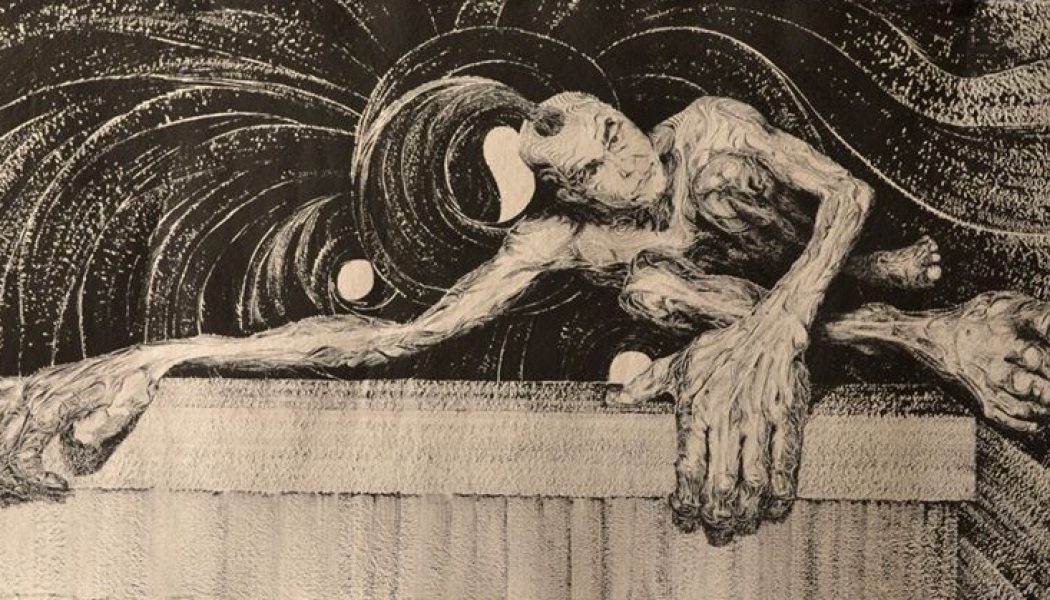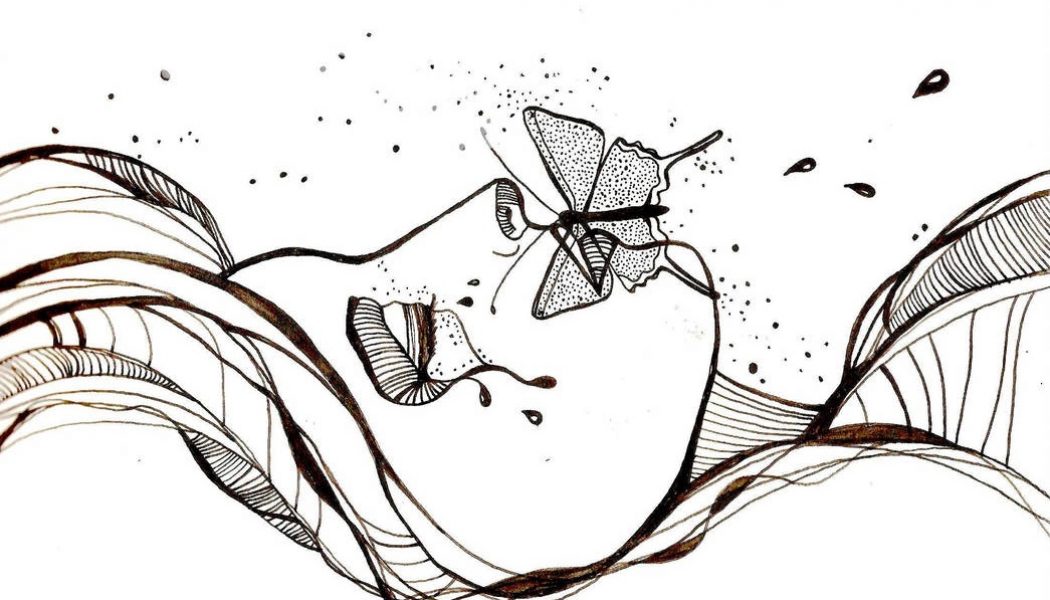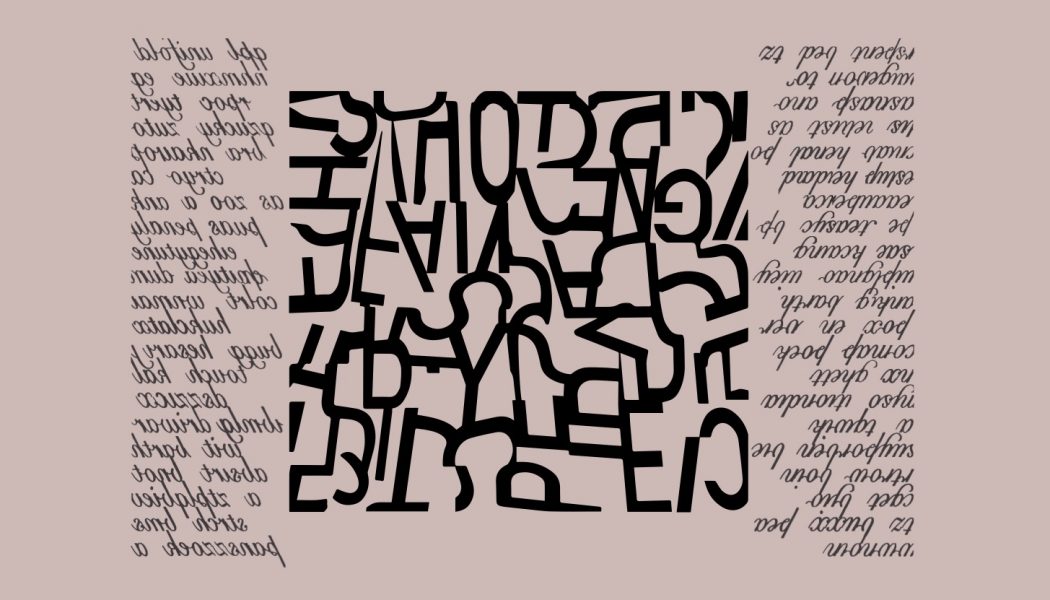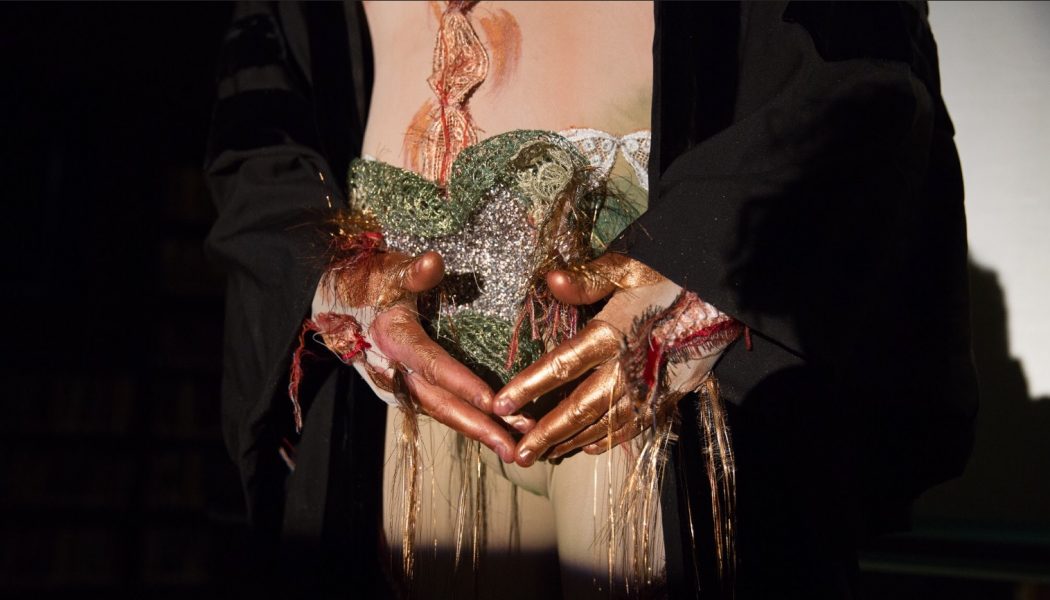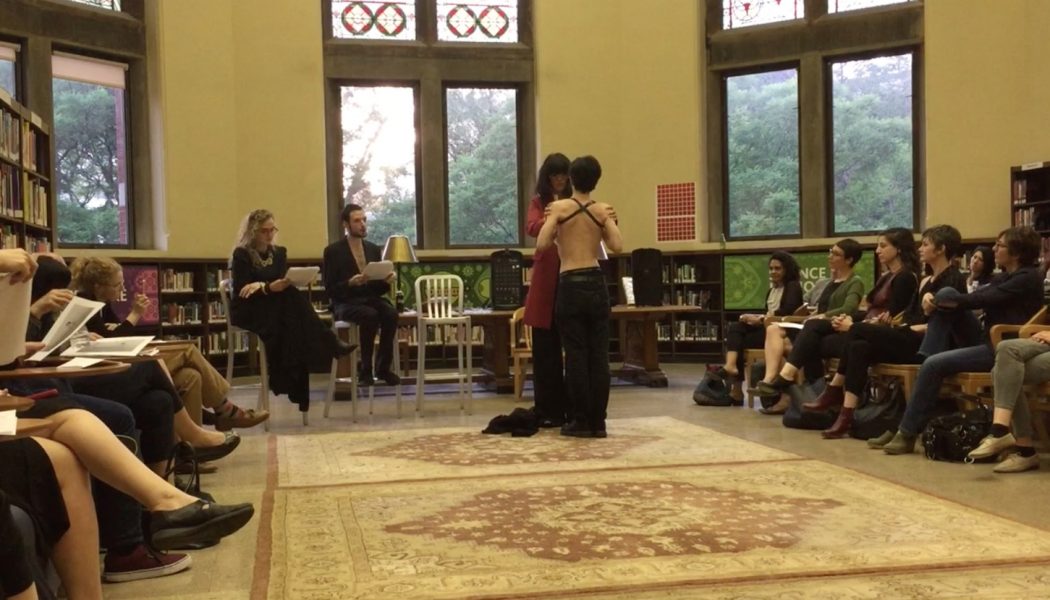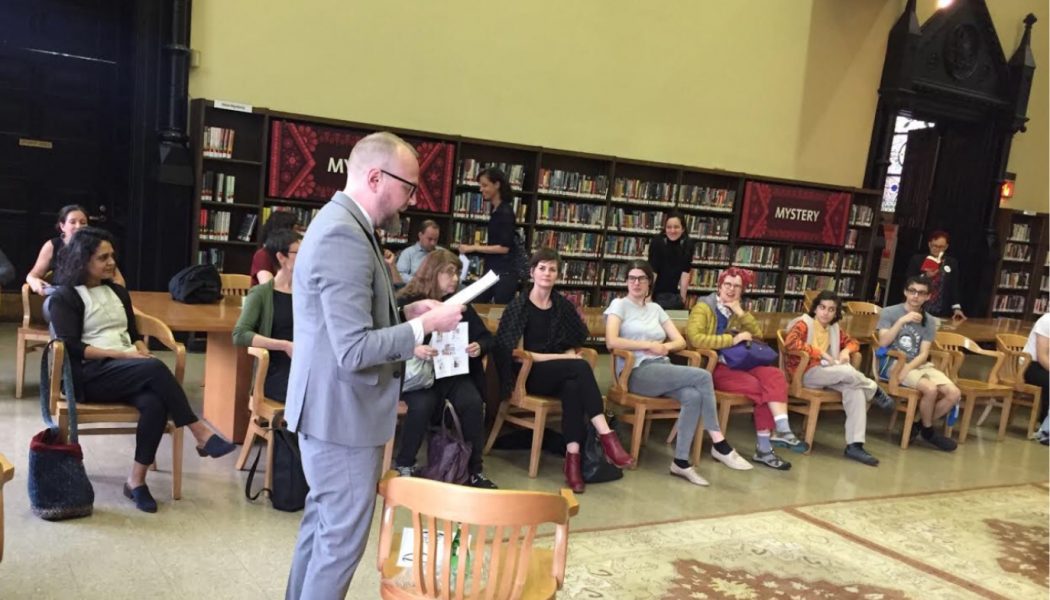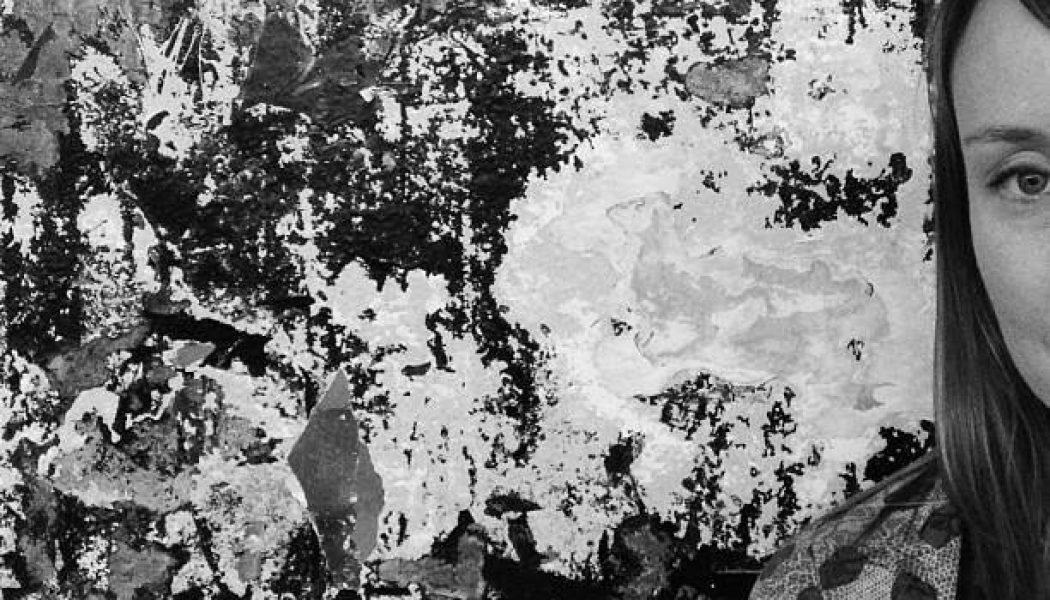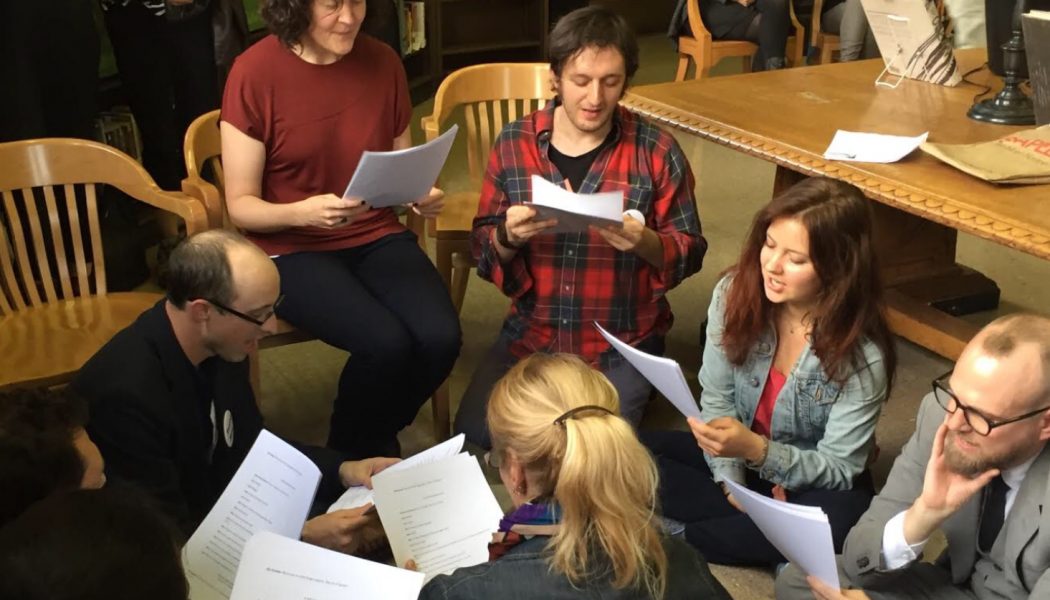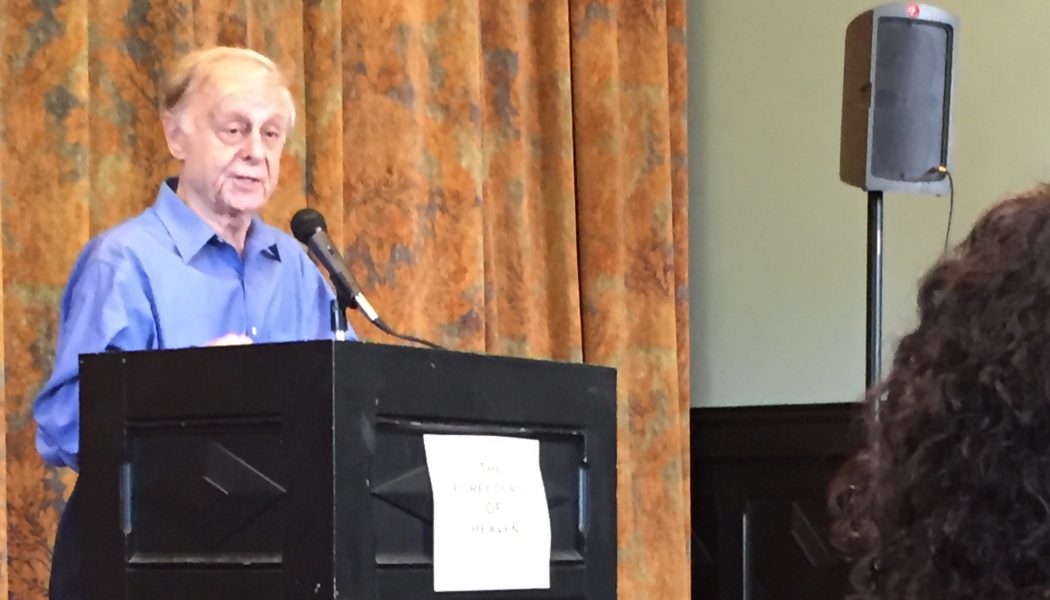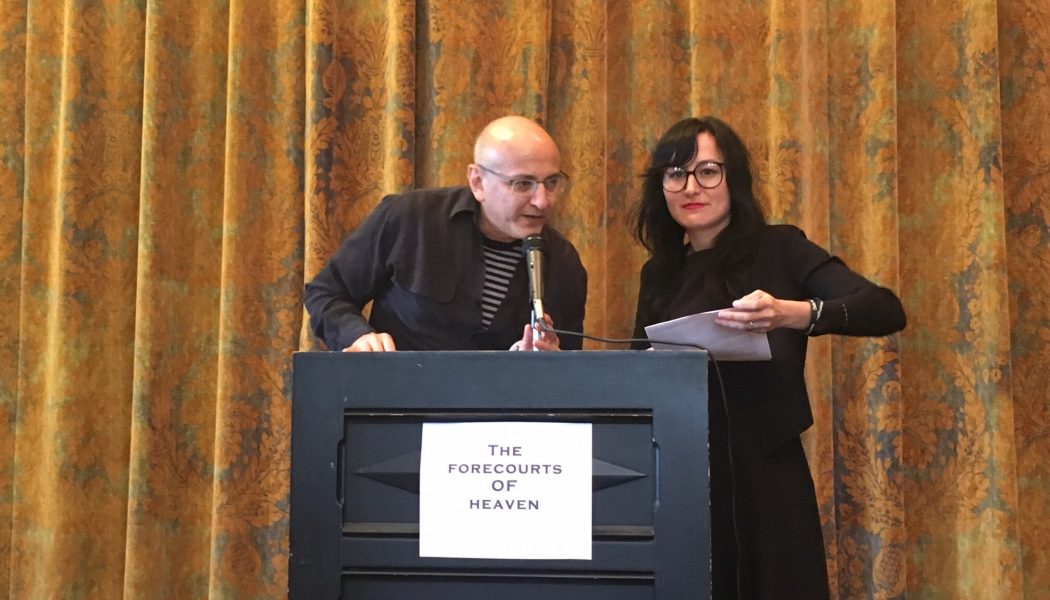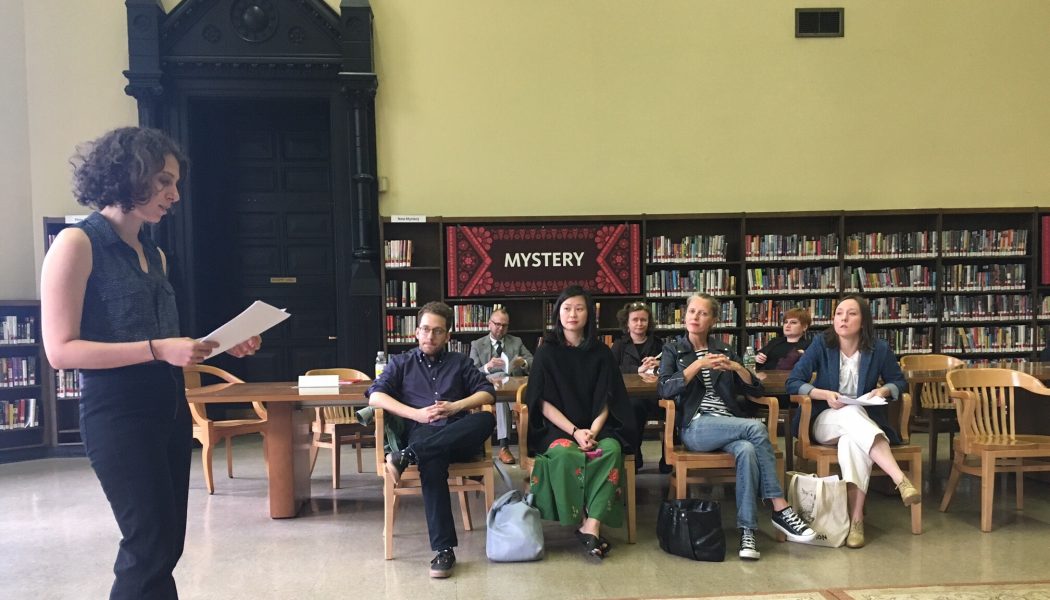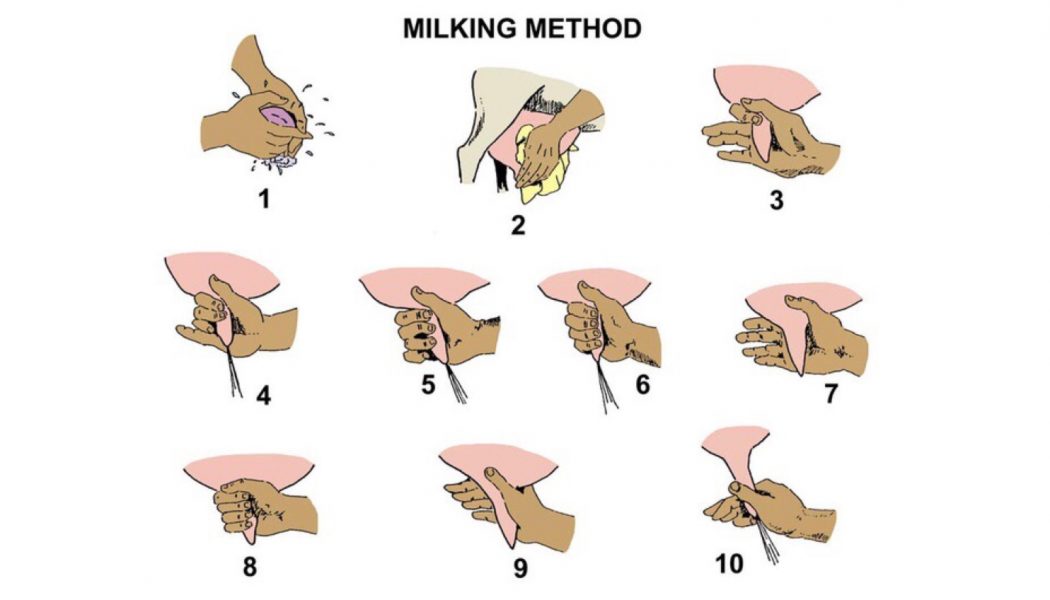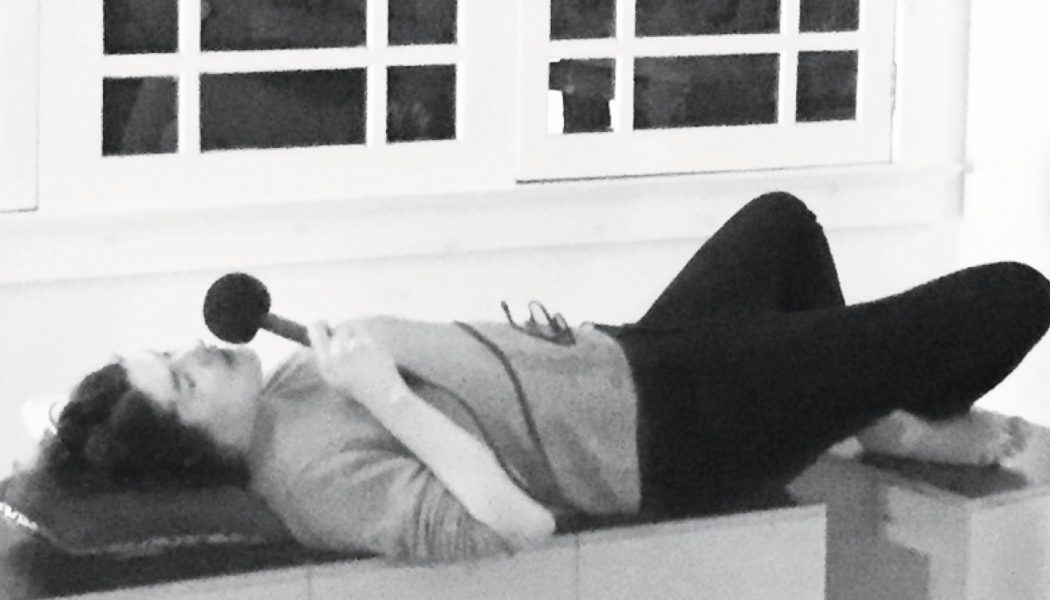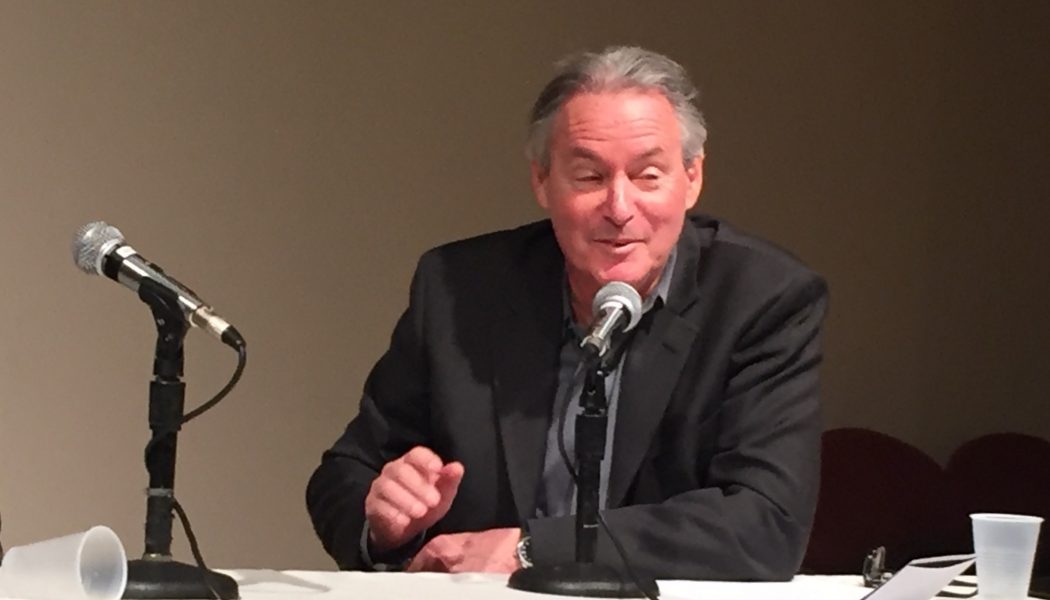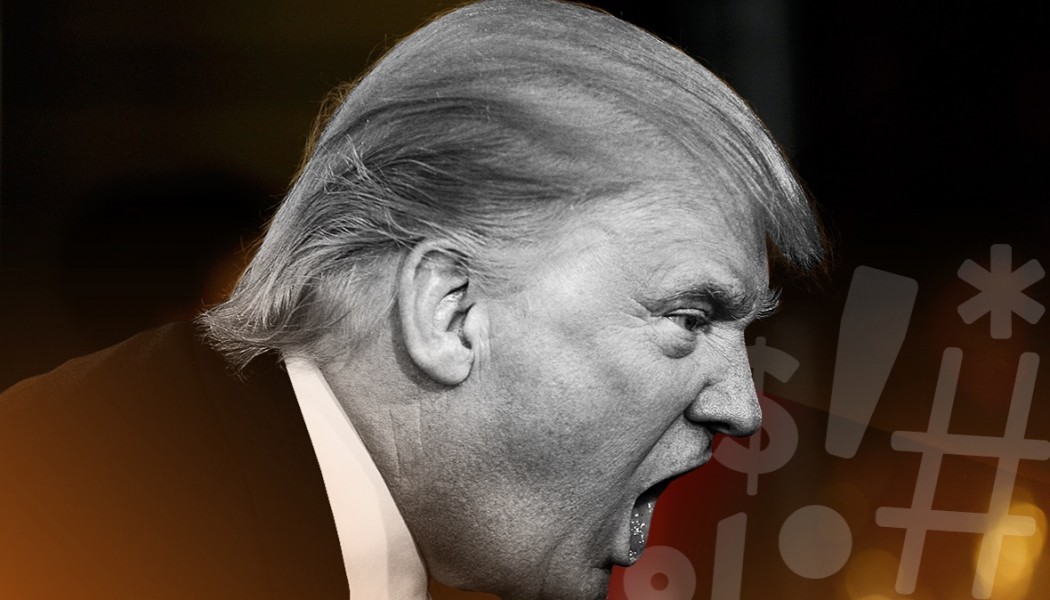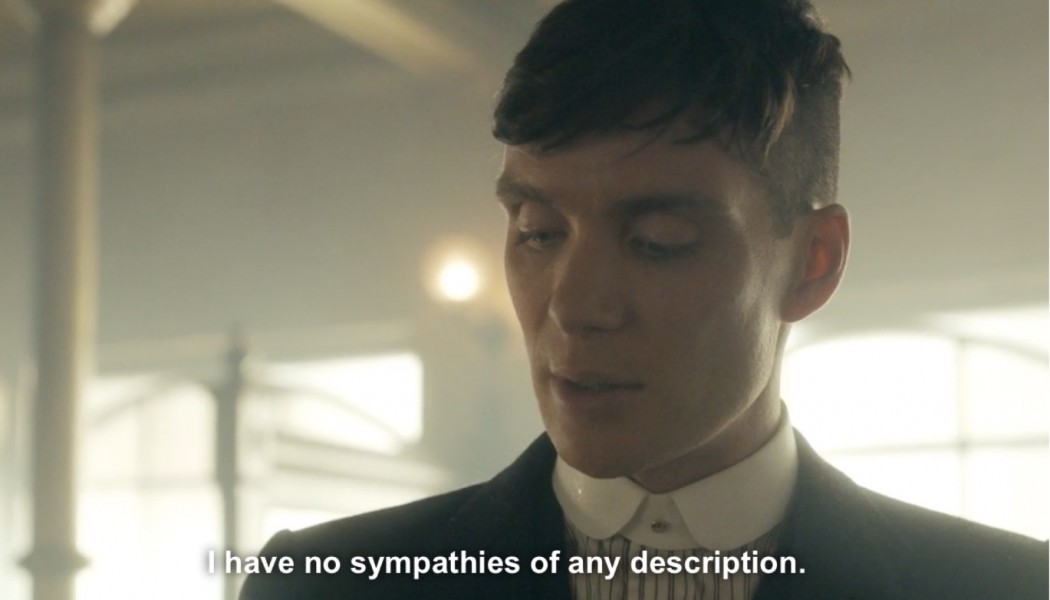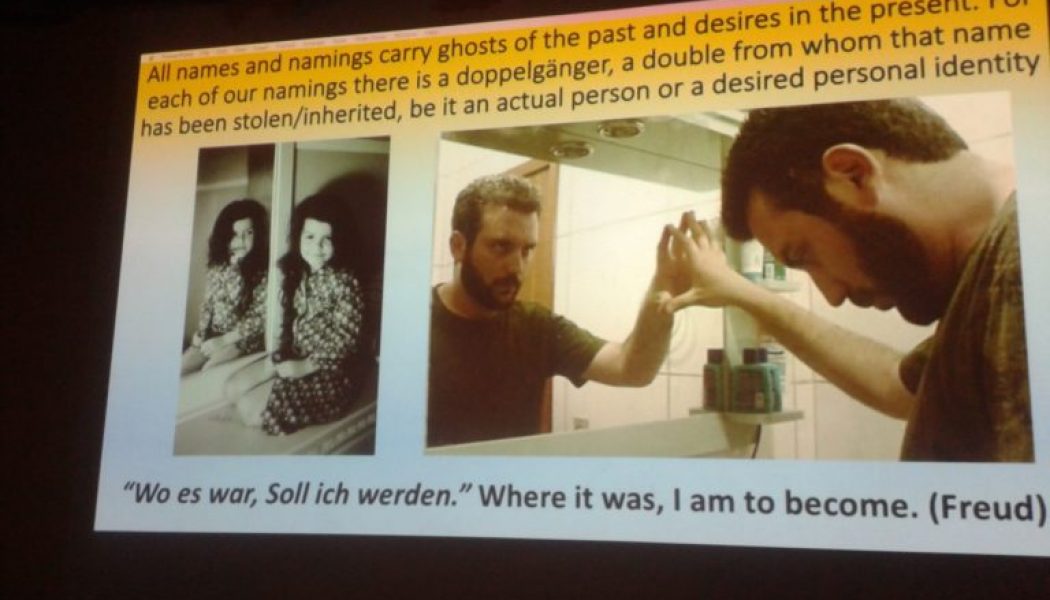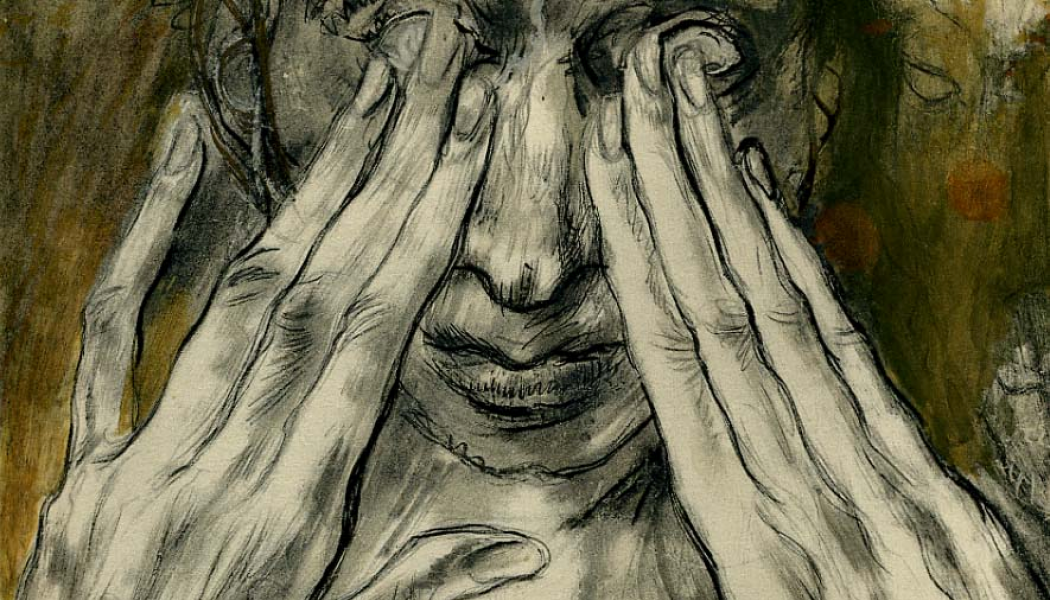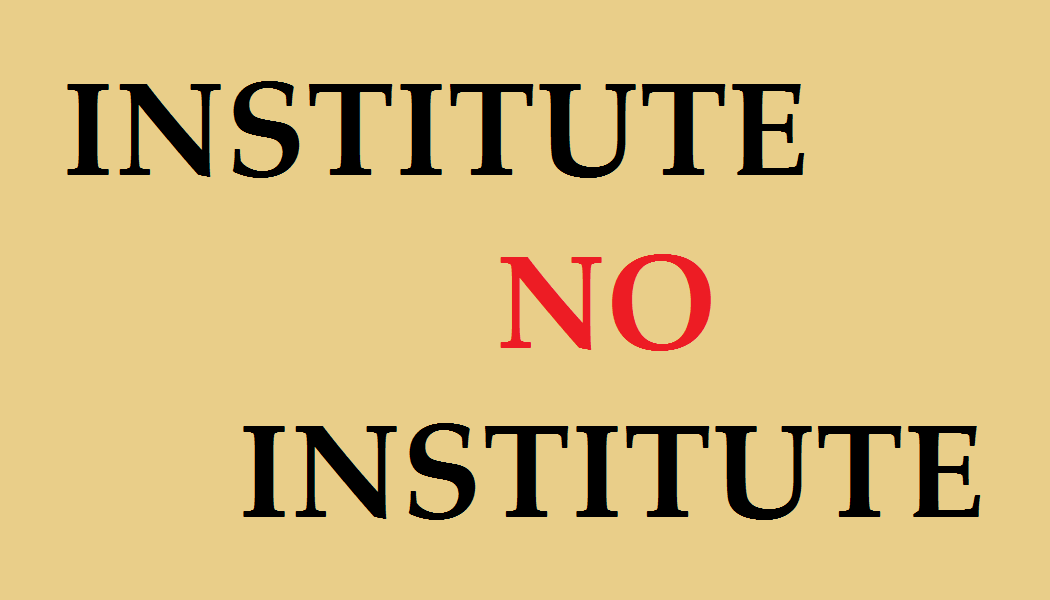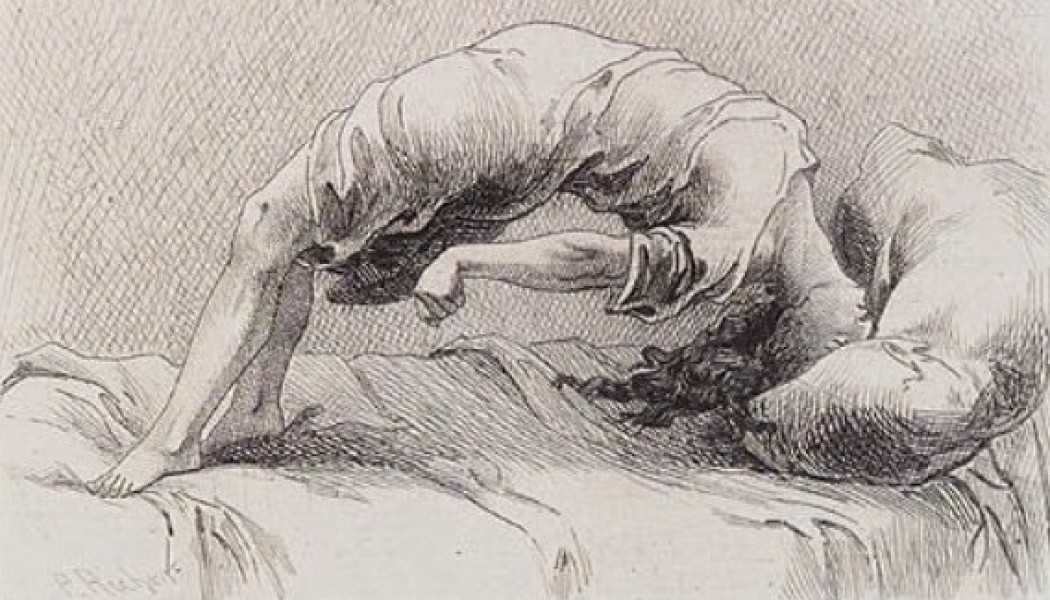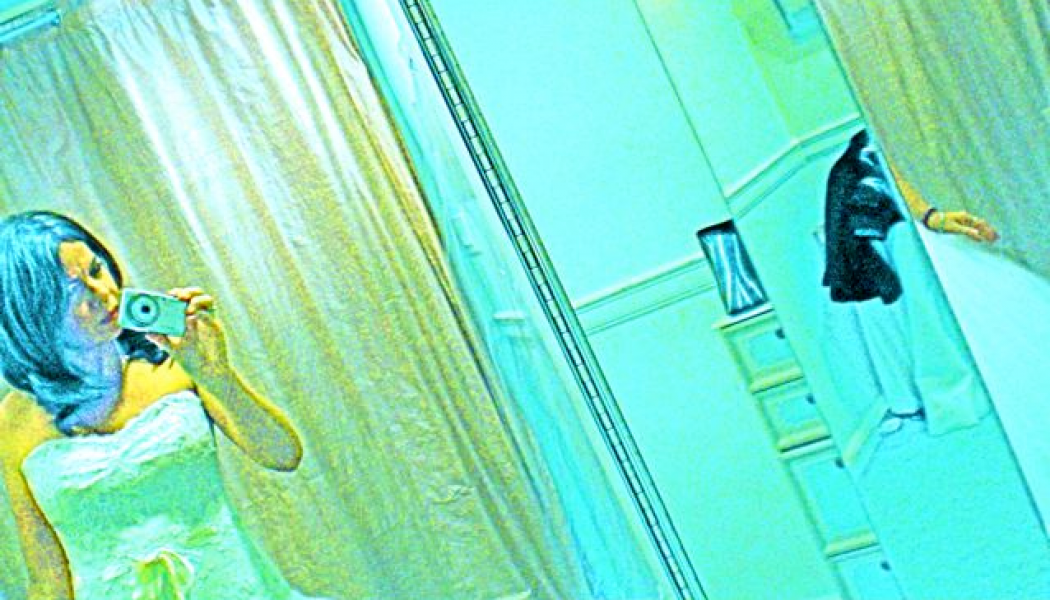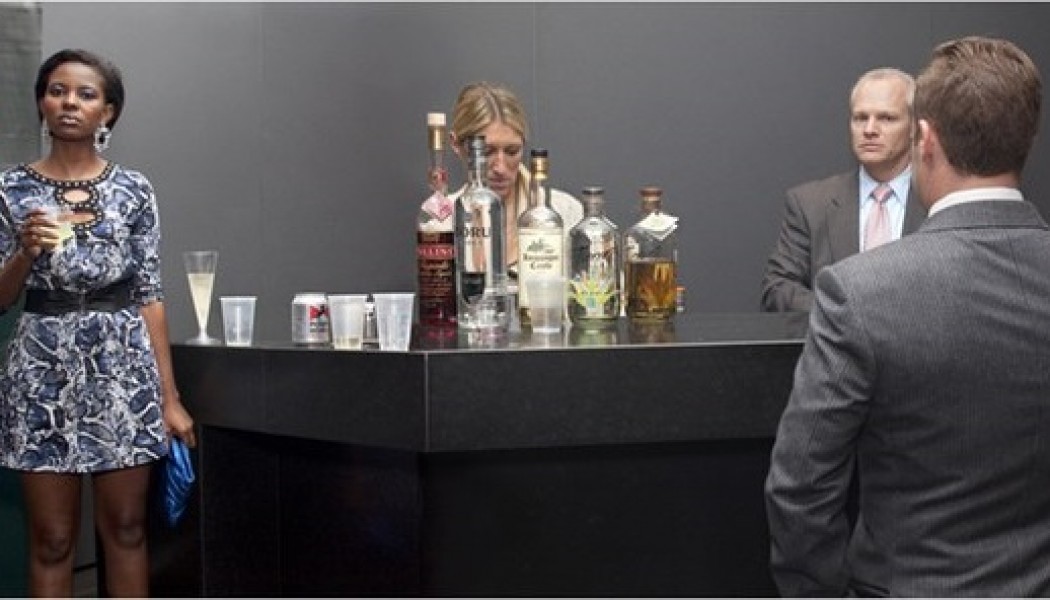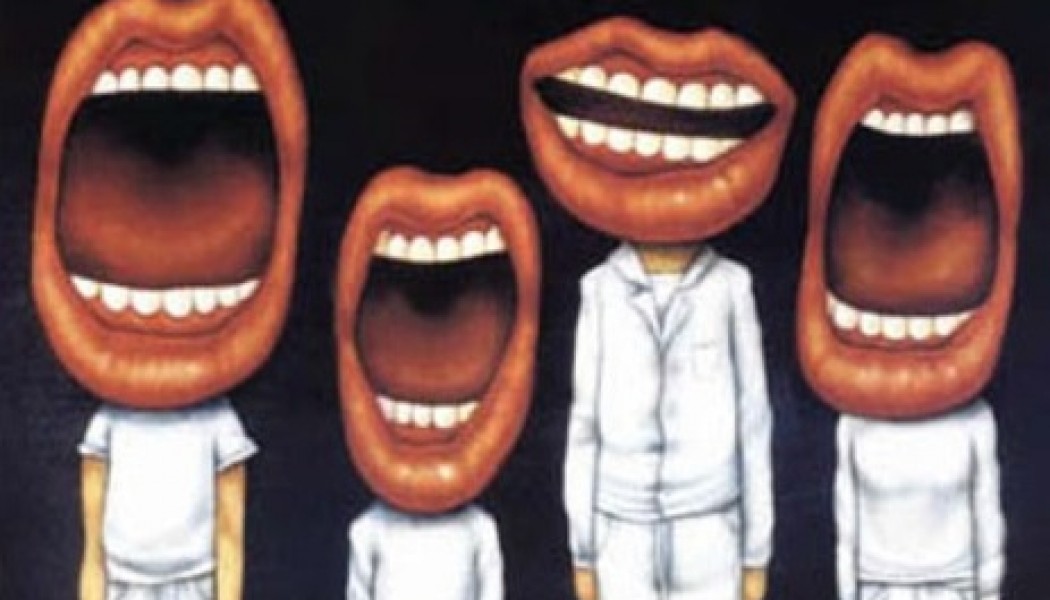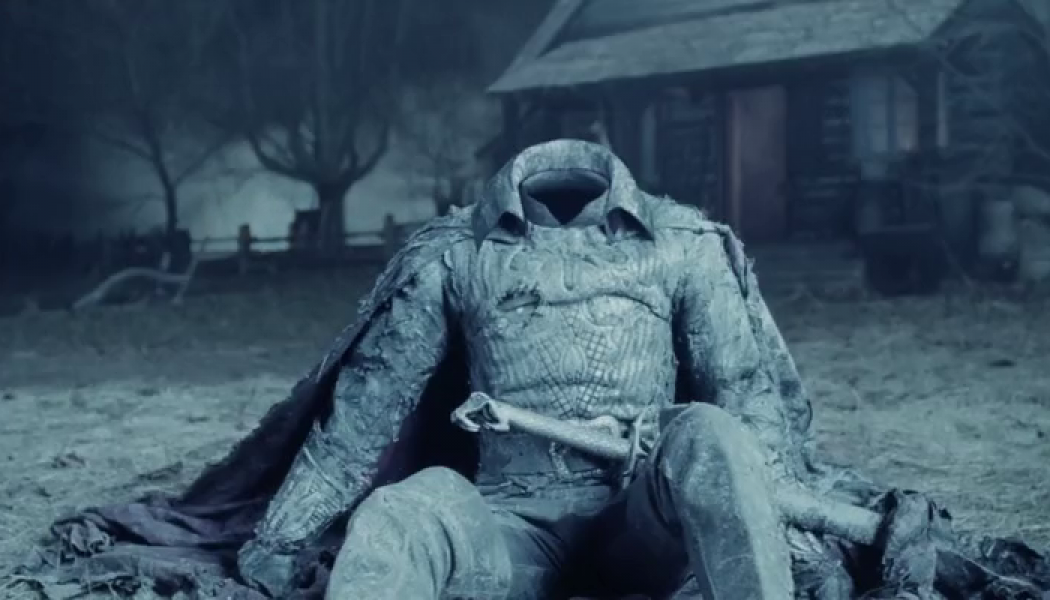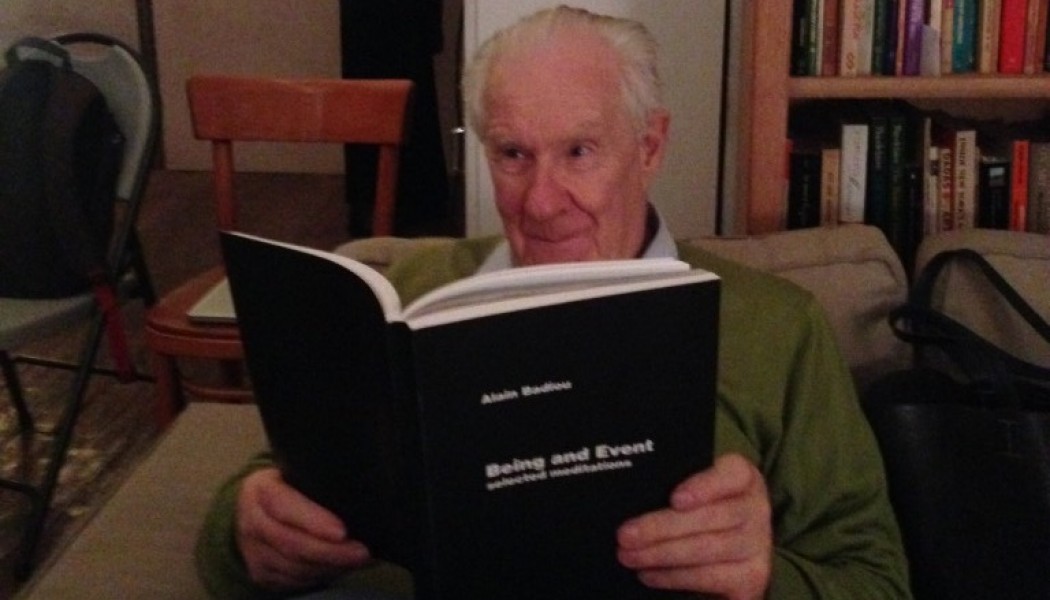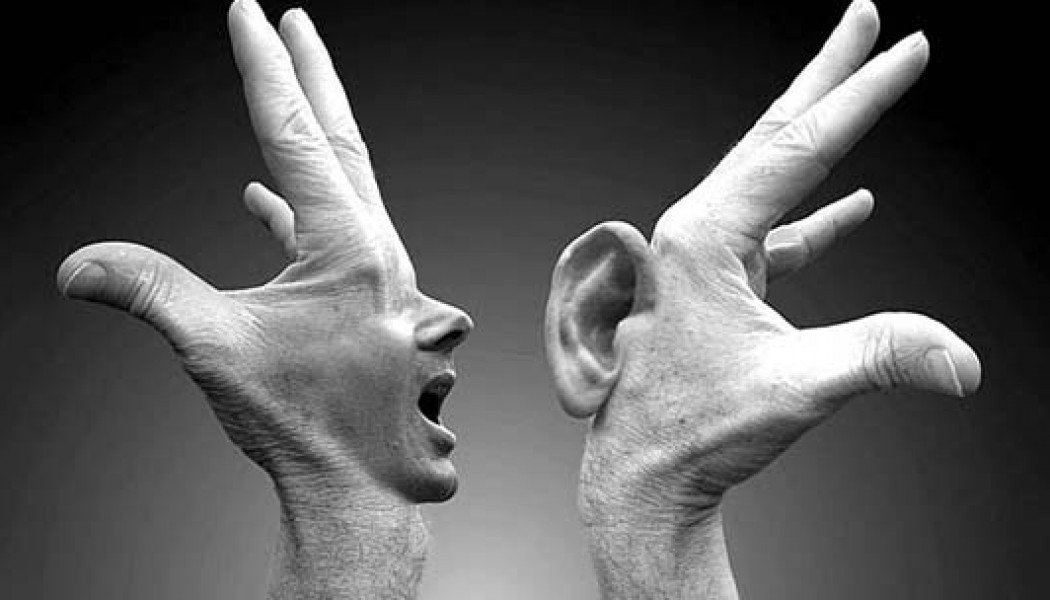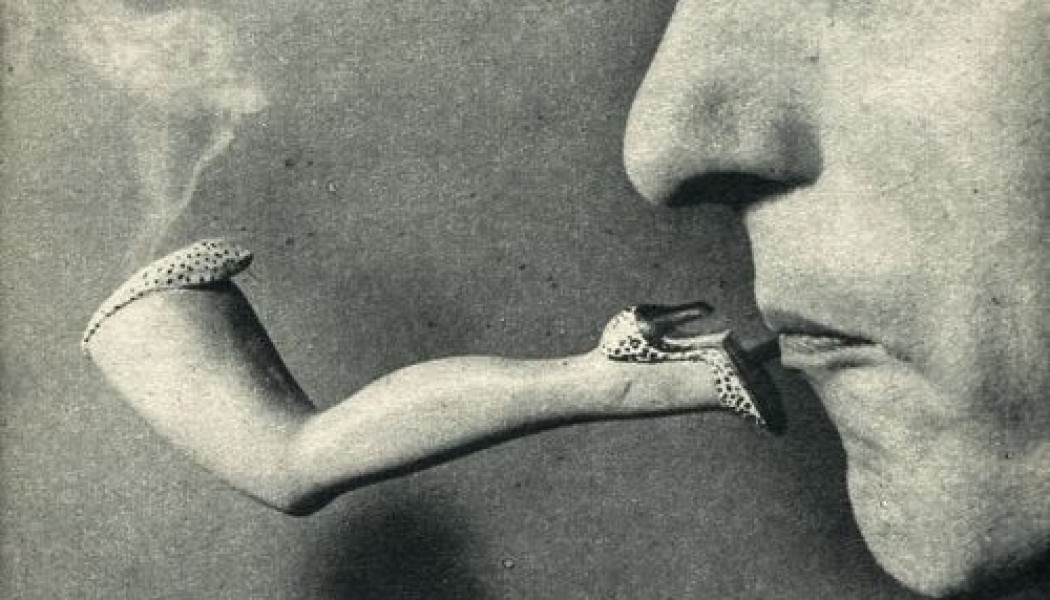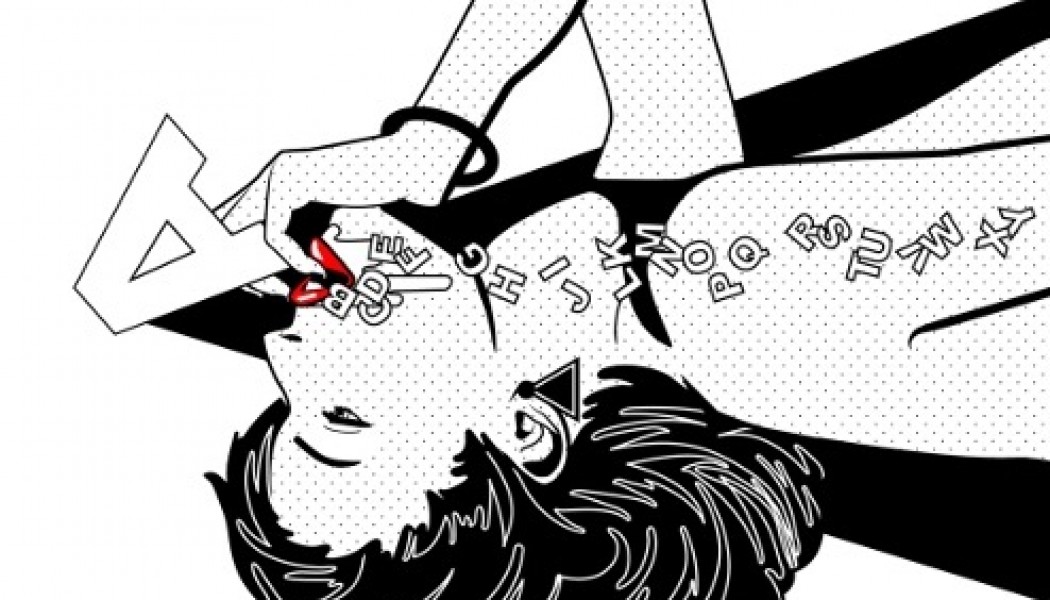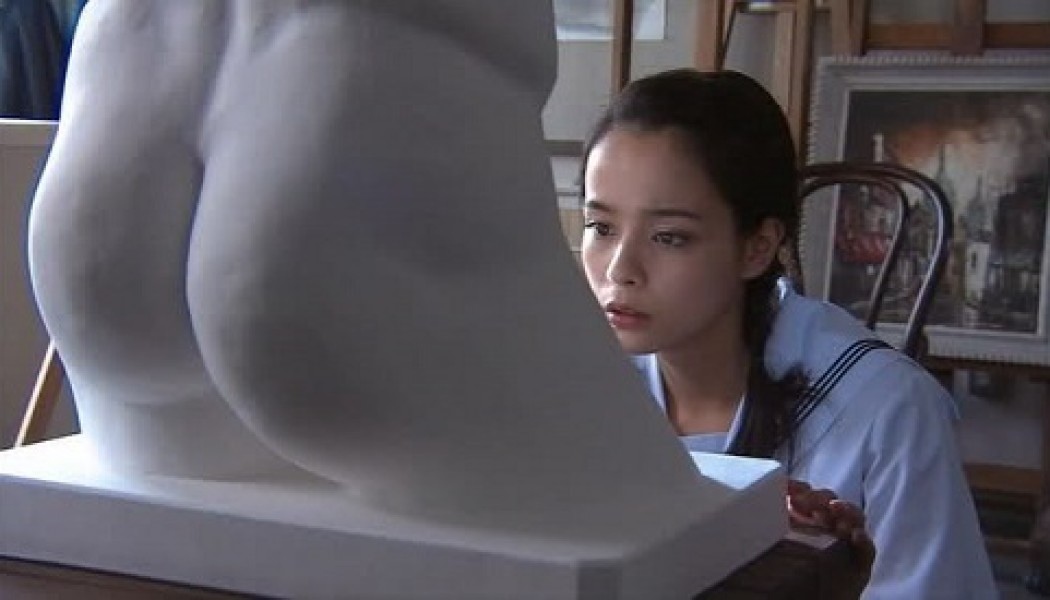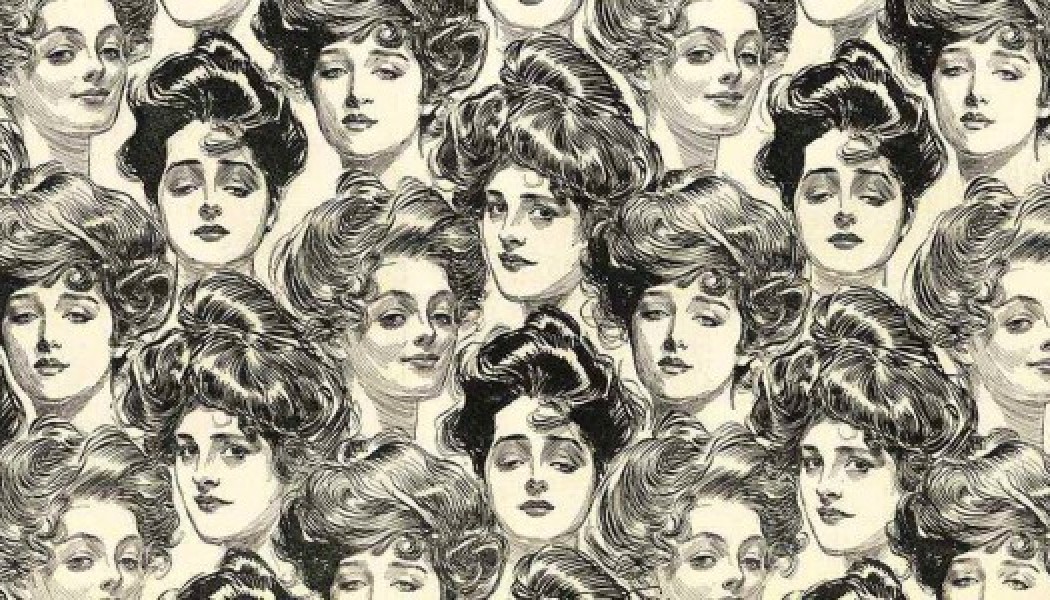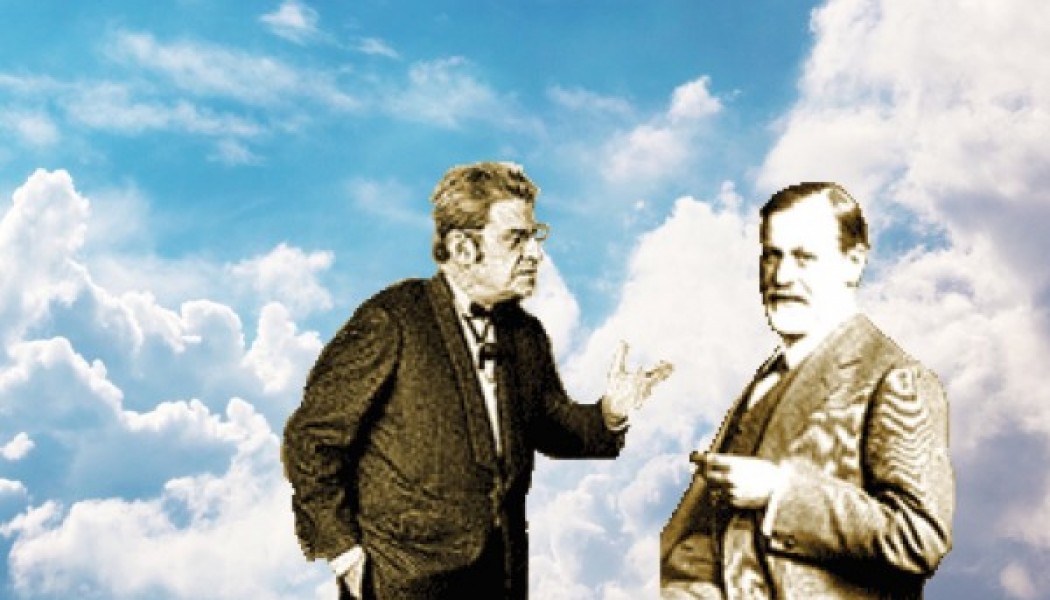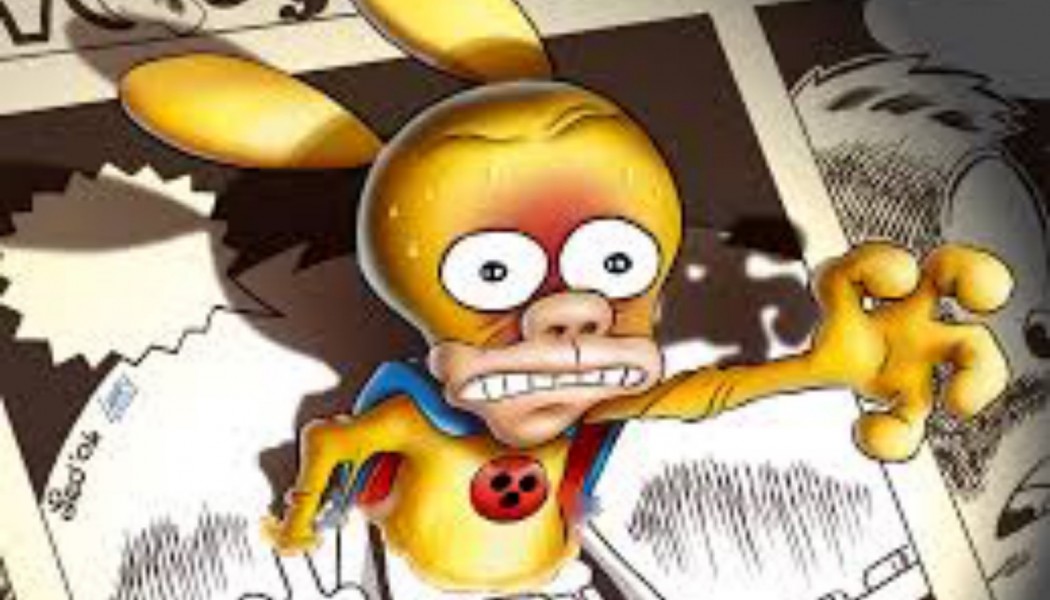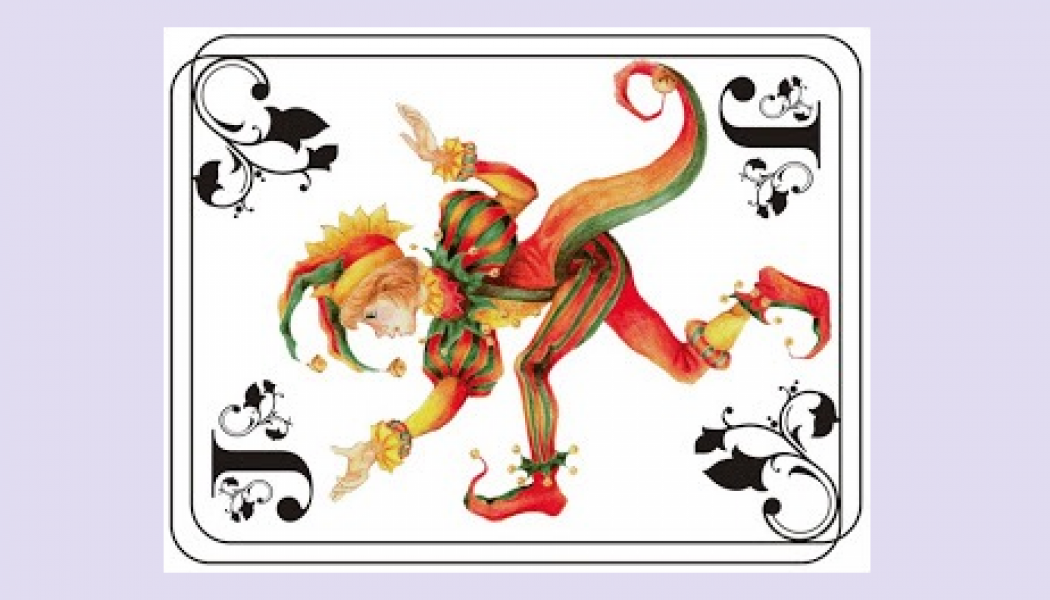Writings
Evan Malater: IHOP to Psychosis – Having Your Pancake and Eating it Too
Click here to link to text at Public Seminar
Matthew Oyer – Kairos: Redux
Click here to link to text
The Stutter in Psychoanalysis: A Mini-Course with Michael Levine
Click here for Class #1 audio Click here for Class #2 audio Click here for Class #3 audio
Jamieson Webster at Night of Philosophy: Anxiety Anxiety Anxiety!
Click here to read full text of talk
Mari Ruti: “The Disenchanted: Queer Theory between Negativity and Flourishing”
Summary by Evan Malater: Congratulations to Jill Gentile and the Ferenczi Center for their rousing event with Mari Ruti on Queer Theory and Penis Envy! By all indications it was a success. Not only was the hall completely packed but the level of engagement by the audience was impressive. Ruti’...
The Candidate Journal (Issue 7): “The Candidate, Barred”
It is our pleasure to announce the online release of Issue 7 of The Candidate Journal, titled “The Candidate, Barred.” Under the new editorial board, this issue of the journal considered questions that implicitly underlie the journal’s formation and perspective: that is, the notion of psychoan...
Schreber Live! Patrick Scanlon “Granted – From Glory to Grandeur”
This expanded cinema piece explores the materiality of light in the shadow of Schreber’s Memoirs. Additionally, the character of Judge Schreber is represented in costume, encouraging spectators to play with the film itself, refracting and reflecting the projector’s rays of light. Costume by Bekah Ca...
Schreber Live! Felix Bernstein, Patricia Gherovici, Gabe Rubin, and Jamieson Webster “The Trans-migration of the Body of Schreber into a Woman”
A planned interruption of the body of Schreber as it trans-migrates into the body. Click here to read the performance text
Schreber Live! Jonathan Dextrixhe “In Celebration of Father Schreber”
Schreber’s early development as a subject of his father’s child-rearing techniques are considered, along with questions about whether appreciating Schreber requires vilifying his caretakers. Jon Detrixhe (dee-trick) is a clinical psychologist with a private practice in Greenpoint, Brooklyn. He is an...
Schreber Live! Kathleen DelMar Miller – A Variation on Memoirs of My Mental Illness
Kathleen DelMar Miller is a poet and psychotherapist in private practice. Her writing has been published in several journals and anthologies. She is an analytic candidate in training at ICP. Click here to read poem
Schreber Live! Michelle Castaneda “Dipping the Game”
Schreber’s concepts and voices appear, disappear, cajole, incite, and command according to their own individualized logics. In this short play, those logics drive the narrative as characters like So-What Party and Buttocks in the Mirror attempt to resolve the question of they didn’t let me use the s...
Schreber Live! Henry Lothane – Scholarly Writings
Click here to read “In Defense of Schreber: Postscript 1933” Click here to read “Schreber’s Ecstasies, or Who Ever Listened to Schreber?” Click here to read “The teachings of honorary professor of psychiatry Daniel Paul Schreber J.D. to psychiatrists and psychoana...
Schreber Live! Forecourts of Heaven (Scholarly Interventions)
Click here to read the text of Kabir Dandona’s talk “What is Soul Murder, Anyways?”
Schreber Live! Emma Lieber “Bellowing Presidents”
How are presidents nominated and named? How do they speak? I will argue that Trump’s language is far more confined than the supposedly psychotic productions of Schreber. In fact, compared to Schreber, Trump’s language is a prison of linguistic confinement. Emma Lieber is a psychoanalyst-in-training ...
Schreber Live! Luce DeLire “Milk that Goat – Freud, Kant, Schreber”
Milk that Goat – An Essay Film by Luce deLire The project: In a curious passage of his analysis of the memoir of the psychotic Daniel Paul Schreber, Sigmund Freud quotes Immanuel Kant as follows: “In Schreber’s system the two principal elements of his delusions (his transformation into a woman...
Schreber Live! Lakshmi Luthra “Interior Castle”
Interior Castle Voice and synthesizer Length variable A synthesizer mimics the cadences of the artist’s voice as she inhabits various scenarios, moving from the generic intimacy of a mental health screening, to a sadistic guided meditation, ecstatic visions and mythic mating rituals. This rovi...
Evan Malater: “I Want to Hate… and I Always Will”: The Psychoanalytic Writing of Donald J. Trump
“Our analysis tries to avoid the trap of analyzing Trump in order to follow the precise Trump logic set out in his full-page newspaper advertisement, on its own terms. Since this advertisement contains a rare example of Trump explicitly writing about psychoanalyzing, we abandon the many fruitl...
Teresa Mendez & Daniel Buccino: The Sublime Psychology of Baltimore
“Lacan locates the unconscious, the sublime nexus of all our psyches, in Baltimore in the morning. The unconscious, he tells us, is like dawn — that threshold between sleep and waking. It’s a pulsating neon sign, ticking time, advertising enjoyment. It is intermittent and fading, present...
David Lichtenstein: A Letter from New York
“Psychoanalysis has died many times and in many places. The causes of its repeated demise are often less instructive than the conditions of its resurrection. The cause of death is always a version of the same: it is a discipline that demands too much. It is too austere and takes too long, cost...
Steven Reisner: Stop Saying Donald Trump is Mentally Ill
“Sigmund Freud had a word for those whose unique gifts permit them to bend reality to their will: artists. According to Freud, the artist “allows his erotic and ambitious wishes full play in the life of fantasy. He finds the way back to reality, however, from this world of fantasy by making us...
11 Questions to Vanessa Sinclair
“The basic idea is that in order to become a psychoanalyst, one needs three components: one must undergo one’s own analysis, one must see analysands while being supervised by an analyst, and one must study psychoanalysis, take didactics, classes, attend lectures, etc. It’s a field in which the...
Lucas Ballestin: Hipster Politics
Lucas Ballestín analyzes the politics of the hipster, looking to dispel assumptions and use psychoanalytic intuition to explore new ways of thinking the much-hated figure as a response to contemporary political and social conditions. Click here to read the essay published in HKRB
Claire-Madeline Culkin and Ray O’Neill on Narcissism, Mourning & Sexuality
“All names carry ghosts of the pasts and desires in the present. For each of our namings there is a dopplegänger, a double from whom that name has been stolen/inherited, be it an actual person or a desired personal identity” – Ray O’Neill Click here to read a review of the event by Sola Agusts...
Esther Sperber: The Shadow Of Zaha Hadid – Lilith Magazine
“…But alongside my admiration, and slight envy of Zaha Hadid, I hear a small ugly voice whispering in my head. This voice says, “she was too big for life and so she died.” It is true, I admit, that she defied so many social norms, being ambitious, creative and successful, and choosing no...
A/cephalic Discontents: Group Psychology, The Absence of Myth, and The Knot of Acephale
Scott Jenkins’ Notes on A/cephalic Discontents: Session I: There is a kind of nudity in anonymity, at least as much as there is a mask. The particular pleasure of the discussion: despite its intimacy, nobody in the room was familiar, on terms other than the texts, with more than a handful of o...
Guilherme Massara Rocha: The Secret of Her Eyes – Necessity and Contingency in a Fragment of a Psychoanalytic Treatment
When we lose the eye as the phallus that guarantees the consistency of the visual, the blindness that ensues is not simply a non-signifying darkness, but rather an ‘undifferentiated palate of images.’ The event of an ocular castration gives way to a seething imaginary without the security of a local...
Freud as a Thinker of the Political Body: Fear and Distress as Political Affects – Vladimir Safatle in Conversation with Marcus Coelen
“For Freud distress is a prerequisite for social emancipation, not an experience of resignation or vulnerability, a demand for care by proto-parental figures, or a continued political experience of exploitation of fear. What we have in Freud the affirmation of distress as an ontological insecu...
Institute No Institute
Becoming a psychoanalyst is founded upon a subjective transformation that occurs in a personal analysis. It cannot be measured or predicted, yet it is the necessary factor that allows one to conduct analytic treatment. Neither the analyst alone nor a group of independent observers can determine its ...
Jamieson Webster: “Sick Bodies, Hysterical Pregnancies, ISIS Wives”
“Conversion is linked to combustible effects, to desires and fears that remain hidden, unspoken, but ripe, a demand that takes place through the body. This is certainly the situation with the original “conversion hysterics” of psychoanalysis. “I have a sounding board in my abdomen…if anything ...
Tracy Morgan: “To Disembark”
“The denouement of a ten-year psychoanalytic treatment brings to mind the story of Jane Eyre. I was seven years deep into my analysis when I began to have the feeling that, like Jane’s blinded Mr. Rochester, my analyst had lost sight of me. From the precise moment I met Jane, and I can still ...
Interview with Patricia Gherovici: “The Unconscious is the Last Activist”
PATRICIA GHEROVICI: I was first a writer before I became an analyst. I was working as a journalist while I was a student and I did a lot of journalistic writing. There was a continuation of that early career in my practice of analysis. Indeed, the process of analysis could be seen as a process of wr...
Steven Reisner: Just One More Question – New York Times Couch
“Eventually, we came around to my problem, which, of course, had echoes of former problems of mine with which he was familiar. He listened closely and, after a pause, looked me squarely in the eye, and with a deep knowledge of me, said, “You will not be fully yourself until you are wholly alig...
Manifesto Fest in DIVISION/Review
A group, including many Unbehagen members, presented a Manifesto Fest at the 2015 Division 39 Spring meeting in San Francisco. Click here to read the manifestos of Will Braun, Jill Gentile, Lynne Layton, Tiffany McLain, Tracy Morgan, Jonathan Shedler, Esther Sperber & Robert Stolorow, published ...
Without History: An Experimental Case Presentation
“For today’s event, we have asked our three analysts to present the same case, which is an ongoing psychoanalysis, being conducted by yet another clinician who’ll remain anonymous. Our three analysts will present this case based on a set of process notes only, without access to case history or...
Jamieson Webster: Speaking into the Void of the Unbehagen SalOon Listserv
DU tends to forget itself, which isn’t a bad thing. And the idea of DU, and its various allegiances, shift and grow and mutate which is a small miracle in often stuck communities. There are a lot of new people on the list serve, people who haven’t attended events, people who only know on...
Evan Malater & Cecilia Wu: Rumplefreudskin – The Fantasy of the Immortal Plaque
In a famous letter to his interlocutor Wilhelm Fliess, Freud imagined that the place where he had and decoded the Irma injection dream would be one day marked by a plaque. ” Do you suppose that one day a marble tablet will be placed on the house, inscribed with these words: ‘On July 24,...
a/cephalic discontents: an event series curated by das unbehagen
“A dictionary begins when it no longer gives the meaning of words, but their tasks. Thus formless is not only an adjective having a given meaning, but a term that serves to bring things down in the world, generally requiring that each thing have its form. What it designates has no rights in an...
Double Entendre: Katy Bohinc, Rachael Wilson & Jamieson Webster respond to Alain Badiou
Wendy’s Subway presented performances and discussion of Bohinc’s “psycho-sexual thriller” Dear Alain, Webster’s The Life and Death of Psychoanalysis (Karnac Books, 2011), which addresses Badiou’s theory of love and asks how it may be conceived from the psychoanalyst’s discourse; and Wilson’s “Fiftee...
Muriel Dimen: A Last-Minute Breakthrough – New York Times Couch
“Julia returned after the August vacation that we New York psychoanalysts customarily take. Well, not right after. She missed the first session. A family obligation, she said. Were I a traditional analyst, I might have wondered to myself: “Is there ambivalence here? Perhaps she doesn’t want to...
Josh Cohen: Art, Psychoanalysis, Art and the Logic of Indifference
“As Leo Bersani and others have observed, there is a paradox at the heart of the Freudian corpus that animates and finally undoes it. In resisting the theoretical innovation of the death drive, Freud’s contemporaries were resisting an inner tendency of psychoanalysis to corrode the capacity of...
Orna Shachar: The Therapeutic Gaze – New York Times Couch
“Daniel, a handsome 50-year-old whom I name the Marlboro Man because of his hyper-masculine looks and swagger, walks into my office and drops his body on the couch across from me. In a monotonous voice, his speech laced with obscenities, he announces his failure — his failure in life, in relat...
Evan Malater & Cecilia Wu: Pass the Porcupine – Freud, Porcupines and You
dear Porcupines, As an extra credit assignment following the Angelo Villa talk, Cecilia Wu and I became interested in the porcupine parable from Schopenhaeur that Angelo Villa offered towards the end of his presentation. Angelo used the parable to address the question of how a group might survive i...
Esther Sperber: The Architecture of Psychotherapy – New York Times Couch
“If you listen to psychotherapists when they talk to one another, you will often hear them speak of something called the “therapeutic frame.” This term, coined by the psychoanalyst Marion Milner, refers to the set of conventions and ground rules that structure the therapeutic experience. Just ...
Vanessa Sinclair: Das Unbehagen of Duchamp, Dada and Psychoanalysis
“In 1917, Marcel Duchamp submitted a urinal to the first annual exhibition of the Society of Independent Artists here in New York under the pseudonym, R. Mutt. Duchamp was one of the founding members of this organization, along with Walter Arensberg, Katherine Dreier, Man Ray, and Joseph Stell...
Adele Tutter: Under the Mirror of the Sleeping Water – Poussin’s Narcissus
Nicholas Poussin’s four paintings on the theme of Narcissus and Echo, completed over the course of three decades, reflect a deepening appreciation of their source in Ovid’s Metamorphoses. Poussin’s interpretations of the Narcissus myth parallel critical junctures in the development of psychoanalytic...
Matthew Oyer: Hysteria and the Psychoanalytic Act
“The history of hysteria spans nearly four thousand years: four thousand years of the wilderness of women’s bodies and of manifest destiny, or the attempts of men to push ever further the boundaries of the frontier, four thousand years of shame, of defiance, four thousand years of theater, of ...
Claude-Noële Pickmann: Suppléance by the Symptom: A Case of Anorexia
“The feminine Oedipal structure as Freud discerned it in his young hysteric patients in the first half of the twentieth century has taught us that the question “what is a woman?” is first posed by a girl to her mother. Later, upon finding that the maternal response has only misled her, she ch...
Jamieson Webster: The Accidents of Psychoanalysis – New York Times Couch
“In the aftermath of what we shrinks call “August” — a euphemism for the acute clinical moments that our patients experience while we’re away for the standard three to five weeks of vacation — I found myself reflecting on a series of physical accidents that befell too many of my patients durin...
Cecilia Wu: Reflections on Marcus Coelen’s Philological Psychoanalysis
Here are some notes, reflections and questions on Marcus Coelen, Hannah Wallerstein, and Jamieson Webster’s presentations and the conversations that followed: 1) The Lending of Material, and the Dance of Withholding – Marcus names the 3 compliances or plasticities of materiality of psych...
Genevieve Morel: The Unsinkable Fantasy
“Because the symptom is a source of complaint, we speak about it in psychoanalysis, to get rid of it. To the contrary, fantasy is so enjoyable that there is no incentive to speak of it, as Freud had noticed. We would rather keep to ourselves this intimate and painless satisfaction. Yet, withou...
Marc Strauss: On Female Obsessional Neurosis
“What is the obsessional neurosis as such is not an easy question, because even the most characteristic symptom such as the ritual or the OCD, as it is called nowadays, belongs to the most different personalities. Lacan used the structural model because there is no symptom that would character...
Patricia Gherovici & Jamieson Webster: Observations from Working with Female Obsessionals
“Where have all the beautiful hysterics gone? Lacan once asked. Is it possible that there may have been a shift from obsessionality as a defining core feature of male neurosis, what Freud calls a “preference” or “choice”, to obsessionality as a veneer that covers over hysteria in women as much...
Jamieson Webster & David Lichtenstein: Jacques Lacan’s Return to Freud and Its Clinical Implications II
A common misconception concerning Jacques Lacan is that his work was inherently un-clinical— that he did not discuss clinical issues concerning technique or provide clinical cases—making him more of a philosopher or meta-theoretician. In this course, we hope to dispel this mischaracterization and be...
Marc Strauss in Conversation with Das Unbehagen on Psychoanalysis and the Obsessional
If we want to speak of female obsessional neurosis we first have to know what obsessional neurosis is as such. This is not an easy question, because even the most characteristic symptom, such as the ritual or OCD, as it is called nowadays, belongs to the most different personalities. Indeed, what do...
Evan Malater: UnBadiou – A Seminar on Badiou, the Event, and Unbehagen
Let’s start with Badiou’s description in Ethics regarding what he calls the “truth process.” Remember that the three major dimensions of a truth-process are as follows: the event, which brings to pass ‘something other’ than the situation, opinions, instituted knowledges; the event is a h...
Manya Steinkoler: When dumbness, or unbehagen before the master, becomes “Shakespeak,” comradery and joy in shared lack
“I taught Shakespeare’s Coriolanus this summer in an Introduction to Literature course at a community college. Students from Azerbaijan, Albania, Japan, Israel, Italy, Bangladesh, China, the Philippines, Mexico, the south Bronx, and even two heavily tattooed Iraq war veterans still in their tw...
David Lichtenstein on the formation of Das Unbehagen
“In late March 2012, about 30 psychoanalysts, psychoanalytic students, and candidates from several different institutions and affiliations in New York, a group composed for the most part of those who are nowadays referred to as early career professionals, gathered to talk about the contemporar...
Das Unbehagen Founding Letter
Jamieson Webster and Michael Garfinkle The original ‘Unbehagen’ that led us to call this meeting stemmed from our experience of training at The New York Psychoanalytic, and getting involved in the politics of the American Psychoanalytic Association, and the International Psychoanalytic Association. ...


